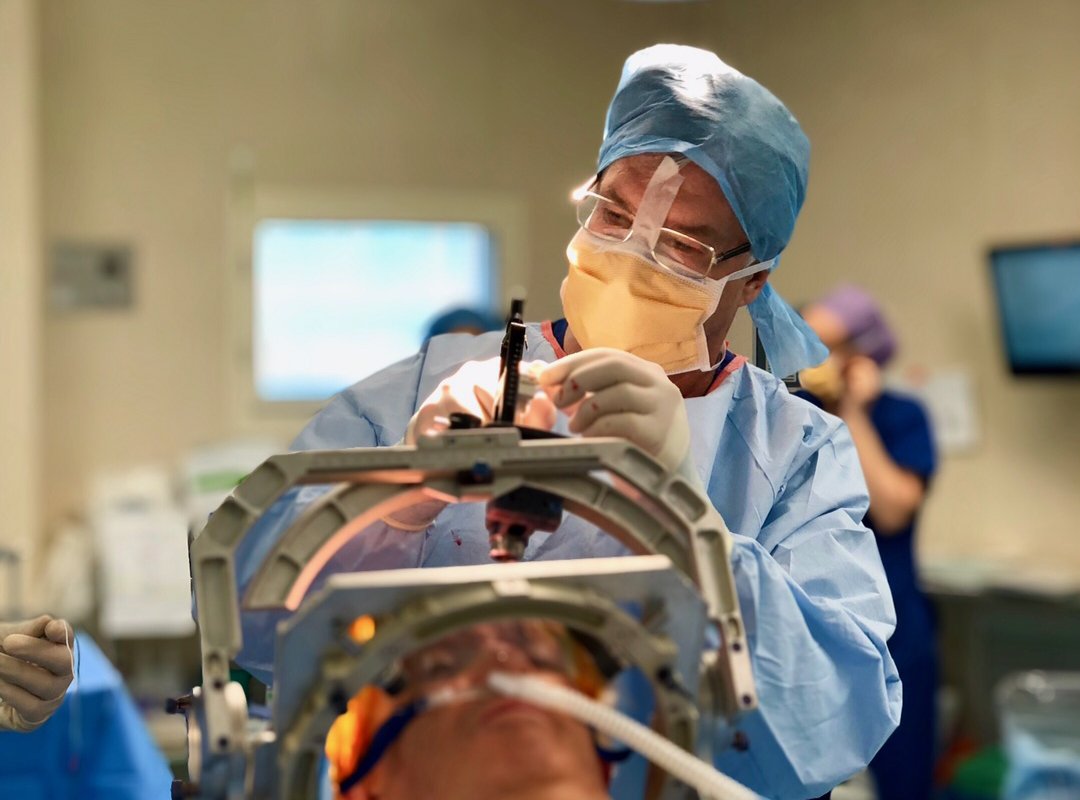Deeper brain stimulator (DBS) treatment can provide lengthy symptomatic improvement for Parkinson’s sufferers, according to recent research. Scientists discovered that individuals that had DBS that involves surgical placement saw considerable improvements in clinical manifestations and used fewer medications over a period of 15 years.
Deep Brain Therapy May help Parkinson’s long-Term Care Patients
“In the 1st moment, our investigation demonstrates the effectiveness of deeper brain stimulator in the lengthy period of 15 decades after the operation and 25 decades following Parkinson’s diagnoses,” stated lead investigation fellow Dr. Elena Moro of Grenoble Alpes College in France.

Parkinson’s illness sufferers are unable to produce dopamine that impairs language, movement, and equilibrium. The medicine levodopa, which momentarily replenishes dopamine, can help to alleviate some of the effects. Dyskinesia, a negative effect of levodopa that causes bending, wobbling, or neck bobbing can occur as dopamine concentrations change throughout the day.
Deep brain stimulus is a treatment for Parkinson’s disease that involves placing sensors in specific parts of the brain. The sensors are connected to pacemaker-like equipment that is implanted underneath the tissue in the chest area and sends an electrostatic force to help regulate sensations. A portable device is used by most sufferers to alter stimulus settings as required.
Moro’s group gathered information on 51 individuals who were receiving DBS treatment for the research. They kept the gadget for a mean of 17 years.
The frequency of occasions sufferers with dyskinesia was reduced by 75 percent when comparing information from after the implantation to information following fifteen years. Usage of drugs to manage dopamine concentrations was lowered by 51%, as well as the period whenever the medicine was no more effective was decreased by 59%. After 15 years of use, scientists discovered only a few minor negative impacts, which were mainly treatable.
DBS is indicated for severe Parkinson’s disease, and Moro noted because when motor symptoms and standard of living worsen despite previous treatments, the operation must not be put off.
“This knowledge is important for clinicians, sufferers, and associated communities when deciding on a surgery treatment choice for Parkinson’s disease,” she added. Those with Parkinson’s disease must be aware that the benefits of brain stimulation treatment can endure for more than fifteen years.”
Brain stimulation and medicines are not effective treatments for the illness. “Features like dyskinesias and cognitive variations are wherein you can get lengthy advantages,” Okun added. According to him, individuals who respond effectively to levodopa are the aptest to profit from DBS.
“This does assist in the long run in flattening out swings, lowering tremor, and shivering,” he stated. “It’s encouraging for traits that remain react to dopamine, and if your hardness or stiffening reacts to dopamine, it’ll be beneficial. This is when it’ll make the greatest splash in fifteen years.”
“Where we observed in the brain stimulation groups is that they’re also susceptible to dementia since they’re really just like typical Parkinson’s illness patients,” Okun explained. “They also have moving, speaking, and cognitive impairments, which this technology approach doesn’t address effectively.”

